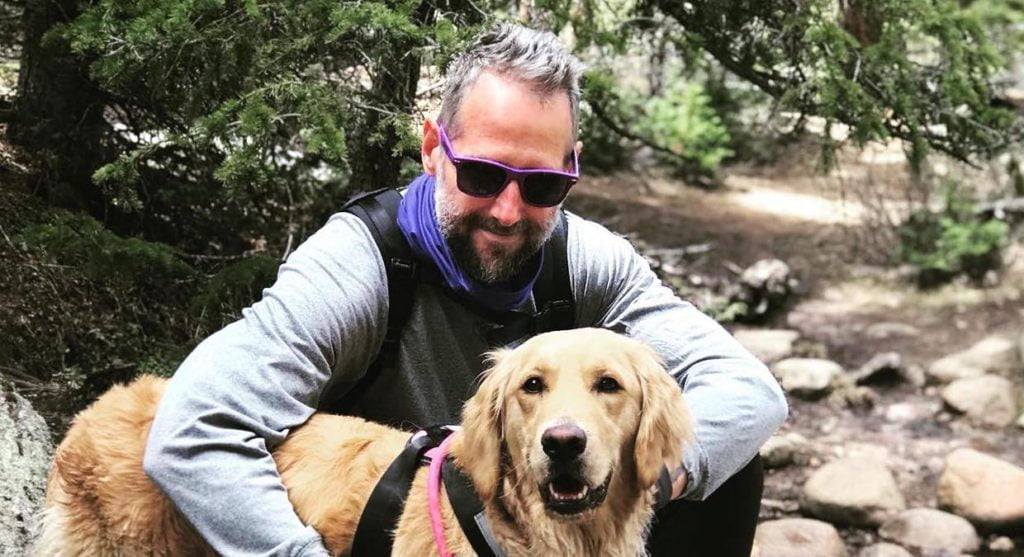Counting Crows are one of those bands that has occupied a pretty enviable spot in the landscape of American pop music. I don’t know anyone that would say the band is their favorite, yet I don’t know anyone that claims to outright hate them either.

That is a position that can sustain you for years. Even if you never write another new song, you can tour of the strength of “Mr. Jones” and “Long December” for decades.
The band also does something very well that every sports talk host should take note of. So many of their songs start with strong opening lines. They paint a vivid picture. They use words that evoke emotion that the band intends to sustain throughout the song.
In short, Counting Crows aren’t dicking around. You know the mood instantly. You can picture the character we are following.
- “A long December and there’s reason to believe maybe this year will be better than the last.” (“A Long December)
- “Step out the front door like a ghost into a fog where no one notices the contrast of white on white.” (“Round Here”)
- “I wanted so badly, somebody other than me staring back at me.” (“Time and Time Again”)
- “She sat right down on the sofa. Says “Where have you been? I’ve been waiting for you.” (“Hanginaround”)
Every song has a theme and a purpose and they are going to make that clear to you from the second Adam Duritz opens his mouth. Can you say the same about the way you approach every segment of your show? Are you getting right to the heart of what you want your audience to think about or react to the second you open your mouth?
We all have bad habits. We learned them from bosses that were stuck in bygone eras of radio or we picked them up from the people we listened to when we were younger. Maybe there was a time when these bad habits were best practices, but now we can more accurately track audience behavior.
Listeners have so many options for sports information. They have even more options for being entertained. Attention spans are short and you cannot count on someone waiting through you talking about the donuts in the break room for you to meet their needs.
Scott Masteller, program director of 1090 WBAL in Baltimore, agrees.
“Never assume and never make the audience wait,” he said in an email. “As soon as the segment starts go right to the topic with content that matters. Do not waste time talking about elements the audience is not interested in or you may lose the listener!”

Duritz is a hell of a songwriter. I find myself going back to Counting Crows’ first three albums, particularly Recovering the Satelites and This Desert Life, pretty regularly. One of the most attractive things about the songs on those records is that they just hit you in the face.
That’s not to say that every song rocks. In fact, most of them don’t. They instantly strike the emotional chord the band is going for.
I have often wondered if that is a result of producing music during the CD era. It was suddenly so much easier to be impatient with a song that wasn’t doing it for you.
Whatever the case, it is the way I wish more hosts operated. I don’t just mean that I want to eliminate the chit chat no one cares about. I also want to eliminate the formatic stuff that we only think we have to do.
There are so many opportunities to say your name. Your listeners likely aren’t going to be with you more than 10-15 minutes, so there is no need to tell them you have a great show. They likely own a phone, or better yet a window, so they aren’t waiting for you to relay traffic and weather information. All of that stuff is a waste of time. When a show opens, I want to hear the host come out with his or her best angle on the biggest story of the day.
Dave Tepper, program director of Altitude Sports Radio in Denver, agrees that there is plenty that can be eliminated. That doesn’t mean you have to eliminate everything that showcases your personality away from sports.

“Don’t repeat what the voice guy said, save your station promo reads for end of segment, save the funny story from the break for later in segment,” he told me. “Open fast with high percentage hit material and work in the rest as the segment progresses.”
If you’re in a PPM market, this is advice you really need to heed when it comes to teasing. How often have we been told that the goal of PPM is to carry people to the next quarter hour? That is what makes teasing so valuable. And if you are going to tease a thought or a topic before going to break, Tepper says you need to reward the people listening.
“Assume listeners sat through multiple minutes of commercials to hear you. Pay them back with urgency by paying off a tease right away, to jump into a topic right away.”
Terry Ford is the new program director of 107.5 The Game in Columbia, SC. That isn’t a PPM market, but he says teasing is ubiquitous in sports radio. There are rules we all need to learn and follow in order for our teases to be effective.

He agrees with Tepper. In fact, Ford told me that he feels sympathy for his station’s listeners when he hears hosts dicking around at the top of a segment instead of launching into the content they promised before the break.
“I’m thinking about the listener who is sitting in their car, not going into the store, because they want to hear the pay-off of the tease,” he told me in a text message.
I never intended to write a series of columns on what various bands and rappers could teach sports radio. Really, this isn’t an idea that has been brewing in me, but here we are. Two years ago I wrote about Weezer. Last year I wrote about Run the Jewels. It’s turned into a comemorative plate series and I guess this is the entry for 2022.
The members of Counting Crows are all pretty dedicated sports fans. In fact, front man Adam Duritz once told me that in 2015, most of the iteneraries on the band’s European tour were built around being awake at 3 and 4 in the morning to watch streams of the Golden State Warriors’ run to a world championship. He and I have also argued over whether Matthew Delavadova is actuallty good, and as I understand it, he once wrote ESPN’s Bomani Jones a fan letter.
These are the kind of conversations you have with guests on rock radio.
Even with that kind of fandom, there isn’t a book’s worth of sports radio lessons I can write based on this band. I just happened to be listening to a podcast called 60 Songs That Explain the 90s and hear host Rob Harivlla point out how good the band’s opening lines usually are and it sent me down a rabbit hole.

The bar for a great opening line is so much lower for us in sports radio. They don’t have to paint a picture. They don’t even have to evoke an emotional response. That can come later.
Your opening line just has to be relevant to the listener. They are coming to you to be intellectually stimulated in some way. Meet that need and meet it quickly. It is the best way to insure they come back over and over.

Demetri Ravanos is a columnist and features writer for Barrett Media. He is also the creator of The Sports Podcast Festival, and a previous host on the Chewing Clock and Media Noise podcasts. He occasionally fills in on stations across the Carolinas in addition to hosting Panthers and College Football podcasts. His radio resume includes stops at WAVH and WZEW in Mobile, AL, WBPT in Birmingham, AL and WBBB, WPTK and WDNC in Raleigh, NC.
You can find him on Twitter @DemetriRavanos or reach him by email at DemetriTheGreek@gmail.com.



